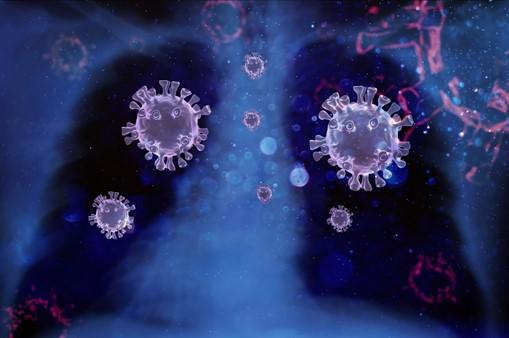For more than 20 years, many first responders and survivors have suffered from debilitating diseases, such as cancer and respiratory conditions, among others. For the past two years, some of these same responders and survivors have faced a second hurdle: Long COVID. According to a recently published study conducted by doctors who treat 9/11 patients as part of the Stony Brook World Trade Center Health and Wellness Program (Stony Brook), 9/11 patients with chronic disease have a greater probability of developing long-term COVID symptoms.
Doctors believe that the medical conditions caused by 9/11 toxin exposure are a significant underlying reason that predisposes patients to develop severe cases of COVID. As a result, these 9/11 survivors may be at a greater risk of suffering from Long COVID. Consequently, doctors plan to monitor 9/11 survivors and responders who contract COVID very closely. Doctors also caution that this study reveals a greater urgency to monitor patients because they are susceptible to developing future health problems as COVID reinfection rates increase.
How COVID Affect 9/11 Victims
The study conducted by physicians and researchers from Stony Brook revealed that 9/11 exposure could severely affect people more than two decades after the attacks. According to reports of the study, doctors treated 1,280 patients who tested positive for a SARS-CoV-2 infection. (SARS-CoV-2 is the infection we call “COVID-19”9 or simply “COVID”).
The sample of 1,280 patients included those who sought treatment at Stony Brook for 9/11-related illnesses as well as those who were not suffering from 9/11-related diseases. Researchers categorized the study’s participants into four groups based on severity: mild, severe, moderate, and asymptomatic. Among this collection of patients, 1,047 almost equally reported their COVID symptoms as either moderate or mild. The study’s participants included 129 asymptomatic patients and 104 who had severe symptoms. The researchers then determined which patients suffered from the so-called “Long COVID.”
What Is Long COVID?
Long COVID is best described as the long-term or lingering effects of a severe COVID infection. According to the American Medical Association, the majority of people who receive a COVID diagnosis and survive recover fully within two weeks. A smaller population of COVID patients, however, continue to be symptomatic or develop new symptoms linked to a COVID infection. Doctors categorize COVID post-infection illnesses as “Long COVID” if patients continue to suffer related symptoms for a period of four weeks or longer. Patients with severe COVID infections seem to be at a greater risk of suffering from Long COVID than those who have a moderate or mild infection.
As with a primary COVID infection, Long COVID symptoms include fatigue, brain fog, loss of smell and taste, shortness of breath, chest pain, dizziness, insomnia, depression, and anxiety, among others. In fact, medical investigators determined that Long COVID can develop up to 200 different symptoms that affect various organs.
Long COVID Connection To 9/11 Illnesses
To date, the medical community has not been able to determine why some COVID patients suffer from Long COVID. The Stony Brook study might provide some insight into solving this mystery. The study concludes that 9/11 survivors and responders are more likely to develop Long COVID than individuals who do not suffer from a 9/11-related illness. According to the data generated by the survey, 57% of patients with 9/11-related diseases who suffered through a severe COVID infection that required hospitalization also suffered from Long COVID.
The Stony Brook researchers concluded that suffering from a chronic illness is one factor that leads to Long COVID. According to the study, 60% of patients who reported long-term or severe COVID have a chronic upper respiratory disease, while 35% have an obstructive airway disease. Similarly, 49% of gastroesophageal reflux disease (GERD) patients reported Long COVID. Significantly, 20% of the study’s cohort who had Long COVID suffered from a psychiatric disease as well.
Stony Brook’s medical investigators agree that the link between specific populations and severe COVID has not been determined. The results of the study show, however, that older people, African Americans, and those who have an obstructive airway disease and report depression all have a greater risk of developing Long COVID. Doctors admitted the only connection they could find between Long COVID patients as a whole was the severity of their primary infections.
Stony Brook’s doctors say that further testing is necessary to figure out why Long COVID persists. One theory researchers plan to investigate relates to lung and brain inflammation. World Trade Center responders and survivors disproportionately suffer from chronic lung disease and gastrointestinal diseases more than the rest of the population.
If you are a 9/11 responder or survivor who suffers from a 9/11-related illness, you may be entitled to medical monitoring and treatment through the World Trade Center Health Program (WTCHP) and compensation through the Victim Compensation Fund (VCF) for your 9/11-related medical conditions. Don’t leave your future, or your family’s future, to chance.
At Pitta & Baione, our 9/11 lawyers are dedicated to fighting for 9/11 responders, survivors, and their families. We are here 24/7 to help you recover benefits and compensation for your 9/11 illness. Call us at 844-637-5574 for a free consultation.




